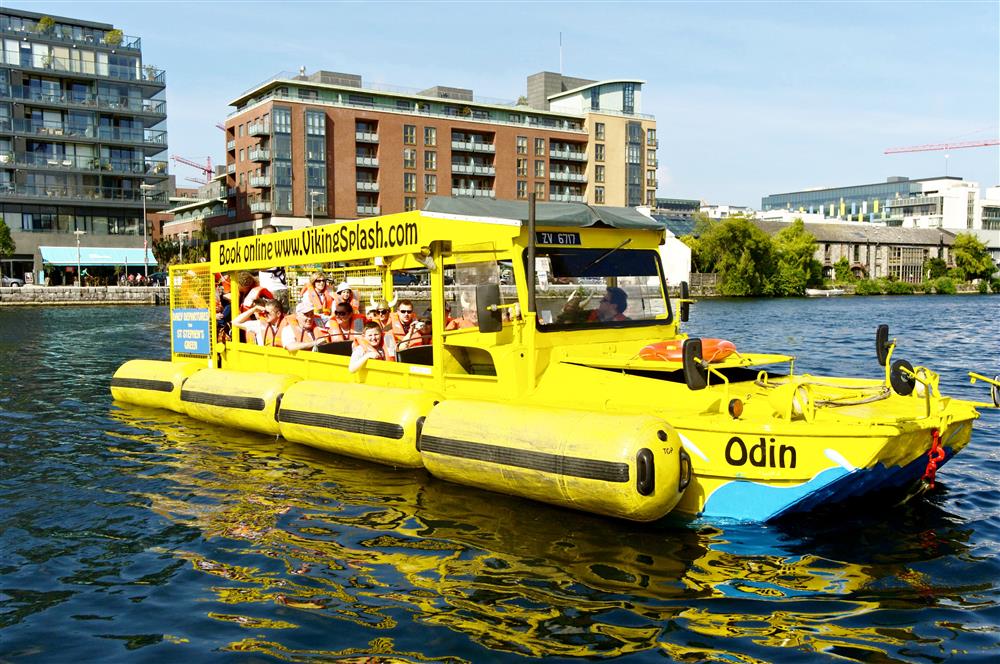Universal Design in Irish Tourism Services as a business case
- Solution
- Irish Standard I.S. 373:2013 on Universal Design for Customer Engagement in Tourism Services, 2013 National Standards Authority of Ireland, Fáilte Ireland and Centre for Excellence in Universal Design, Ireland
- Organization
- NSAI - National Standards Authority Ireland
- Country of Implementation
- Ireland
- Region
- Europe
- Subregion
- Western Europe
- In cooperation with
- Centre for Excellence in Universal Design
- First published
- 31.01.2016

Solution details
People
“I would absolutely recommend the toolkits for any tourism-related industry.” Ciara Lynch, Human Resource Manager, Jurys Inn
All businesses should be focused on meeting the needs of as many existing and potential new customers as possible. From the tourist’s perspective, it is critical that providers communicate in an easy to understand way. In collaboration with the Centre for Excellence in Universal Design and Fáilte Ireland, the National Standards Authority of Ireland developed and published the Irish Standard (I.S. 373:2013 Universal Design for Customer Engagement in Tourism Services), along with a suite of toolkits that provide guidance to tourism providers on how to implement the Standard. Both were drafted through an extensive consultation process, and four case studies have showcased their compelling outcomes and impact. Ireland’s Standard on Universal Design for Customer Engagement in Tourism Services of 2013 is voluntary, and provides an industry best-practice reference on design requirements for the application of universal design by tourism service providers. It outlines universal design requirements that facilitate positive customer engagement through the provision of products and services for communications that can be easily accessed, understood, and used by tourism customers. For each section – written communications, face-to-face communications, electronic and web-based communications – the Centre for Excellence in Universal Design (CEUD) developed easy-to-use toolkits, along with four compelling business case studies.
Problems Targeted
Ireland’s Standard on Universal Design in Tourism Services demonstrates that more accessible customer communications requires neither much staff training or additional cost; indeed, it even provides business benefits such as increased sales by accessible online booking, clarity of menus, and fewer complaints.
Solution, Innovation and Impact
Ireland’s Standard on Universal Design for Customer Engagement in Tourism Services is a national non legally-binding policy that helps tourism service providers to meet their obligations under the Equal Status Acts (2000–2011) and the Disability Act (2005). It precisely describes the communication requirements for a diverse range of customers. Its definition of universal design extends beyond a focus on disability to include all people, regardless of their age, size, ability, or disability. The toolkits’ guidance for use in written, face-to-face, and electronic/web-based communications is designed for the quick and easy training of staff, is practical, and can be applied at little or no additional cost Furthermore, four specific case studies, including video interviews with tourism operators in Ireland, have quantified the business value of adopting a universal design approach to customer communications. Promoting the “easy wins” Rather than specific accommodations, such as Braille menus, the Standard and toolkits emphasize the many design adaptations that make customer communications more usable for all, such as larger font sizes, etc. Usable by anyone The toolkits offer easy to read and easy to understand guidance with images and checklists that show good and bad practices, and parts of these can be used immediately by staff with little or no training._x000D_ More customers & satisfaction The benefits to a wide range of tourism businesses are derived from the competitive advantage received when addressing the needs of a naturally diverse range of customers. Clew Bay Hotel improved the readability of its menus, and increased sales per server from €8,507 to €9,521 (12%). Its improved website led to an increase of online booking revenue from €8,672 to €11,084 per month. Viking Splash improved face-to-face communication, resulting in an 18% increase in online revenue. Purty Kitchen embedded universal design into its website, resulting in an increase of 48% in email subscriptions and 104% in tickets sold online.
Funding, Outlook and Transferability
Ireland’s Standard, along with its toolkits, can be easily adapted by others. Visit England, the English Tourism Authority, has adopted, rebranded, and reproduced the toolkits and has developed its own case studies. The European Network for Accessible Tourism includes the Standard and toolkits in its list of “good practices,” and uses them as a reference in its training courses.
Media
Related information
- Connections
- 2
-
Organization
- People